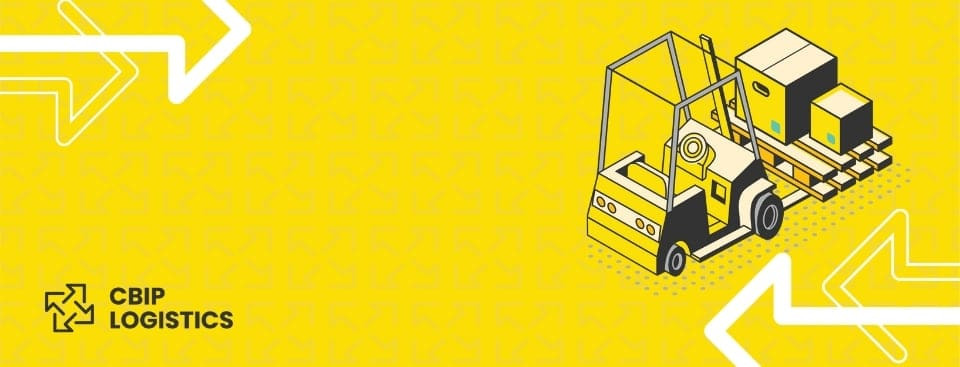Does your business need a freight forwarder? A quick guide

So you want to expand your logistics. Maybe you want to increase your global reach or have a new market in mind.
You may have heard about this thing called a freight forwarder that can help you do it but you’re unsure if it’s what you need. To start, you should ask yourself the following questions:
- Are you shipping internationally but don’t know where to begin?
- Are you unsure of customs and duties in the countries you are shipping to?
- Do you not have logistics connections in the countries you are shipping to?
- Are you unsure of where to begin when shipping freight?
If you answered yes to any of these questions, then you may want to contact a freight forwarder. In this article, we’re going to explain exactly what they are, how they work, and what you should be looking for when you search for them.
Read our blog on how to take your e-commerce business global
WHAT IS A FREIGHT FORWARDER?
By a simple definition, a freight forwarder is a company or individual that arranges imports and exports for your goods. They’ve been a central part of logistics for the past couple of centuries.
Quick History: The first documented freight forwarders were innkeepers who would help guests by holding and sending their belongings and goods for them. These services quickly expanded to serve much larger manufacturers and merchants operating across borders and selling their goods to a wider customer base.
Today, your typical freight forwarder can provide a range of services including but not limited to:
- Goods tracking
- Warehousing
- Transportation
- Customs clearance
- Ocean freight, airfreight, or Consolidation
- Cargo insurance
- Preparing documents on your behalf (bills of lading, certifications of origin, or any specific certifications related to your goods).

Freight forwarders can help you source logistics services for any stage of the shipping and fulfillment process.
The kind of service you can expect varies among freight forwarders. Some provide in-house logistics services like fulfillment. However, most of them, like the innkeepers of old, work as a middle man service linking your business to their lists of providers.
WHY USE A FREIGHT FORWARDER?
The goal of freight forwarding is to help clients like you ship your goods:
- Efficiently
- Cost-effectively
- With quality preserved
- In regions where you lack expertise
- Scalably as your market expands
Freight forwarders are useful when you don’t want to spend time managing every aspect of your logistics with different providers. They have historically been useful in international logistics as operations are more easily carried out by specialists who know the ins and outs of a given region.
HOW FREIGHT FORWARDING WORKS
Freight forwarders are the middlemen of the logistics industry. They help buyers and sellers that lack industry connections to contract with logistics partners handling the physical movement of the goods.
In a single transaction, a freight forwarder can act as a contractor, an agent, or both based on their involvement in your logistics process. As an agent, Freight forwarders can ship your goods under their own bills of lading or air waybills. They also use their own agents or associates at the destination to provide documents for delivery, deconsolidation, and freight collection and keep an eye on their progress.
Once goods are shipped, they can also help you track the whereabouts of your goods so you can keep your customers up to date and give more precise delivery estimates.
HOW DO YOU PICK A FREIGHT FORWARDER?
Not all freight forwarders can do the same services. You will need to do your due diligence with any forwarder you work with. Even if they are registered in their own country, they may not be able to ship to other countries.
This is because the requirements to become a freight forwarder vary from region to region. Not all forwarders have “global capability” either. In the US, for example, local freight forwarders not only need to be licensed but any freight forwarder shipping from another region to the US also needs a license.
These rules don’t always work the same way in other countries. In the UK, for example, they typically don’t need licenses to import or export, although many are part of the British International Freight Association (BIFA).
WHERE FREIGHT FORWARDING CAN GO WRONG
Besides the licensing issues mentioned above, the main limit to freight forwarders is that they are an old system.
Since they deal in traditional logistics freight forwarders frequently skimp on technology and emerging services in the sector (e-commerce, for example). If you’re an e-commerce business a freight forwarder may have little ability to do things like integrate your online store into their process or expand what they offer as your business grows.
YOU MAY WANT TO WORK WITH A 4PL FIRM INSTEAD
If you’re an e-commerce business solving your logistics for the first time, you need to work with a business that not only links you with providers but also knows tech and modern providers. That’s why today, a new type of operator is quickly taking the place of the traditional freight forwarder: the fourth-party (4PL) logistics provider.
4PL firms work in a similar way to a freight forwarder — acting as a sort of middleman to work with providers in other regions. But unlike freight-forwarders, they also come with additional features like:
- Better technology for tracking your goods
- A wider range of prices
- Greater transparency in their logistics process
- A wider network of logistics providers that are fully integrated with them
- Not limited to providers based on associations, licenses, or other regulatory bodies
At CBIP, we are a 4PL firm connecting businesses like yours with an entire network of vetted logistics providers hand-picked based on your business needs. Unlike freight forwarders, we tell you exactly which providers we are using and, if you want to make a change, we let you do it. We also provide software integrations with our proprietary order management system powered by Anchanto that you can link directly to your business.
Want to learn more? We’ll hop on a call with you for free and tell you exactly what we can do. Fill out the form here to get started.






